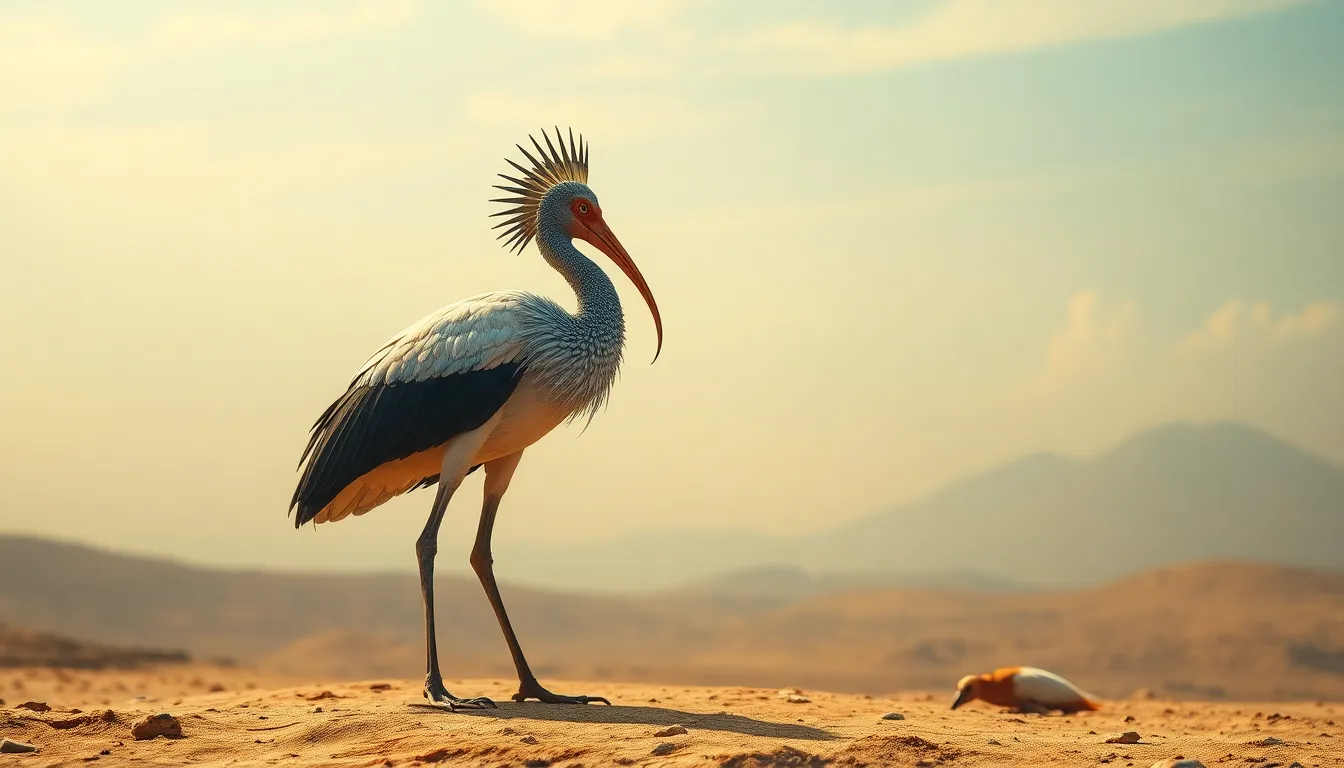The Legend of the Sacred Ibis: Thoth and His Mystical Powers
I. Introduction
In ancient Egyptian mythology, Thoth is a pivotal deity revered for his wisdom and knowledge. Known as the god of writing, magic, and the moon, he played an essential role in the pantheon of gods, influencing various aspects of Egyptian life and belief.
The sacred ibis, a bird associated with Thoth, holds significant importance in ancient Egypt. Its striking appearance and behavior made it a symbol of wisdom and intellectual pursuits, linking it closely to the deity.
This article explores the multifaceted relationship between Thoth and the sacred ibis, delving into their origins, symbolism, mystical powers, and the enduring legacy that continues to inspire modern culture.
II. The Origins of Thoth
Thoth’s origins are deeply rooted in Egyptian mythology. He is often depicted as a man with the head of an ibis or a baboon, symbolizing his connection to wisdom and the divine.
Thoth is attributed with several roles and attributes, including:
- God of writing and knowledge
- Inventor of hieroglyphics
- Patron of scribes
- God of the moon, associated with timekeeping
Historically, Thoth has been depicted in various forms in Egyptian art and literature, often shown writing or recording events, emphasizing his role as a chronicler of the universe.
III. The Sacred Ibis: Symbolism and Significance
The sacred ibis (Threskiornis aethiopicus) is a bird commonly found in wetlands throughout Africa and parts of the Middle East. It is characterized by its long, curved beak and striking white plumage, making it a visually distinctive creature.
In ancient Egyptian culture, the ibis was revered as a symbol of wisdom and knowledge. Its natural behaviors, such as foraging in mud and water for food, were seen as a reflection of the search for knowledge and enlightenment.
Cultural practices surrounding the sacred ibis included:
- Offerings and sacrifices to Thoth
- Embalming sacred ibises for burial, reflecting their divine status
- Depictions in art as symbols of knowledge and protection
IV. Thoth’s Mystical Powers
Thoth is celebrated as the master of various mystical domains, including writing, magic, and mathematics. His intellect allowed him to navigate complex cosmic laws and impart wisdom to both gods and humans.
One of Thoth’s critical roles was in the afterlife and the judgment of souls. He is often depicted weighing the hearts of the deceased against the feather of Ma’at, the goddess of truth and justice, determining their fate in the afterlife.
Thoth served as a mediator between gods and humans, facilitating communication and ensuring balance within the universe. His wisdom and guidance were sought by both divine and mortal beings alike.
V. The Relationship Between Thoth and the Sacred Ibis
The association between Thoth and the sacred ibis stems from the bird’s qualities that mirror the attributes of the god. The ibis’s graceful movements and intelligent foraging behaviors resonate with Thoth’s roles as the deity of knowledge and wisdom.
Rituals and offerings dedicated to Thoth and the ibis were common in ancient Egyptian society. Temples often housed sacred ibises, and priests conducted ceremonies to honor both the deity and the bird, believing that such acts would secure divine favor.
Through the lens of the ibis, Thoth’s wisdom is interpreted as a guiding force, emphasizing the importance of knowledge in achieving harmony and balance in life.
VI. Thoth in Ancient Egyptian Literature
Thoth’s presence is prominent in various ancient Egyptian texts and scriptures. He is frequently mentioned in:
- The Pyramid Texts, where he is invoked for protection and guidance
- The Book of the Dead, where he plays a role in the afterlife journey of souls
- Other literary works that explore the themes of wisdom and cosmic order
In the Book of the Dead, Thoth is portrayed as a crucial figure during the judgment of the deceased, recording the outcomes of their hearts’ weighing. His literary portrayal emphasizes his authority and the reverence in which he was held.
VII. Modern Interpretations and Legacy
Thoth’s influence extends into contemporary culture and spirituality. His attributes of wisdom and knowledge resonate with those seeking enlightenment and understanding in today’s world.
The symbolism of the sacred ibis is also reflected in modern art and literature, often representing themes of wisdom, knowledge, and the pursuit of truth.
The enduring legacy of Thoth and his mystical powers continues to inspire various fields, including:
- Literature, where Thoth-like characters embody wisdom
- Spiritual practices that draw on ancient Egyptian beliefs
- Art that features the ibis as a symbol of intellect and enlightenment
VIII. Conclusion
Thoth’s significance in Egyptian mythology and the symbolic nature of the sacred ibis reveal a rich tapestry of beliefs surrounding knowledge, wisdom, and the divine. Their interconnectedness underscores the importance of intellectual pursuits in ancient Egyptian culture.
As we reflect on the relevance of ancient mythology today, it is clear that the mystical journey of Thoth and the sacred ibis continues to resonate with people seeking deeper understanding and connection in their lives.
In a world that often overlooks the power of knowledge, the legacy of Thoth serves as a reminder of the wisdom that can be gained from both the divine and the natural world.




